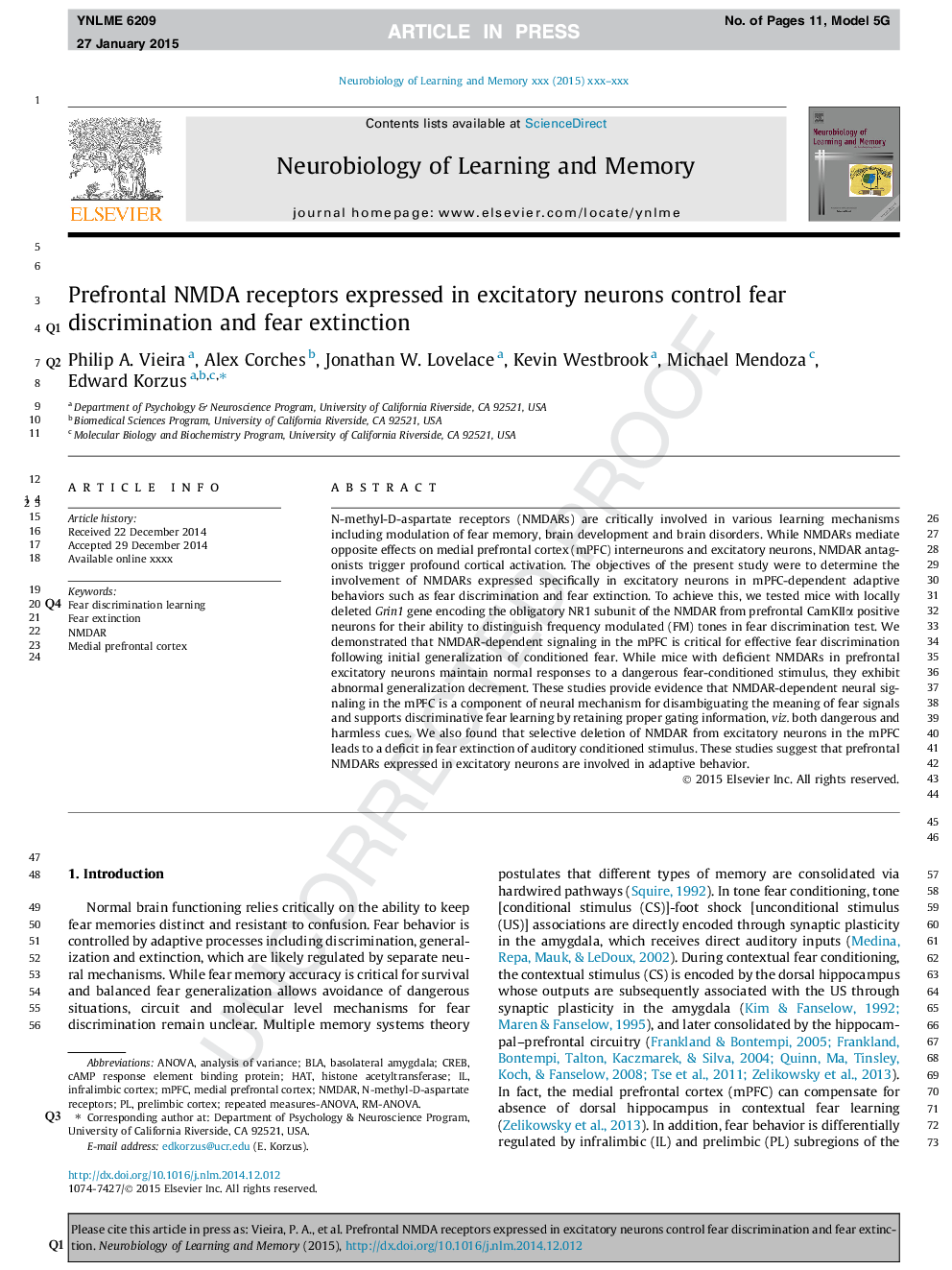| Article ID | Journal | Published Year | Pages | File Type |
|---|---|---|---|---|
| 7299518 | Neurobiology of Learning and Memory | 2015 | 11 Pages |
Abstract
N-methyl-D-aspartate receptors (NMDARs) are critically involved in various learning mechanisms including modulation of fear memory, brain development and brain disorders. While NMDARs mediate opposite effects on medial prefrontal cortex (mPFC) interneurons and excitatory neurons, NMDAR antagonists trigger profound cortical activation. The objectives of the present study were to determine the involvement of NMDARs expressed specifically in excitatory neurons in mPFC-dependent adaptive behaviors, specifically fear discrimination and fear extinction. To achieve this, we tested mice with locally deleted Grin1 gene encoding the obligatory NR1 subunit of the NMDAR from prefrontal CamKIIα positive neurons for their ability to distinguish frequency modulated (FM) tones in fear discrimination test. We demonstrated that NMDAR-dependent signaling in the mPFC is critical for effective fear discrimination following initial generalization of conditioned fear. While mice with deficient NMDARs in prefrontal excitatory neurons maintain normal responses to a dangerous fear-conditioned stimulus, they exhibit abnormal generalization decrement. These studies provide evidence that NMDAR-dependent neural signaling in the mPFC is a component of a neural mechanism for disambiguating the meaning of fear signals and supports discriminative fear learning by retaining proper gating information, viz. both dangerous and harmless cues. We also found that selective deletion of NMDARs from excitatory neurons in the mPFC leads to a deficit in fear extinction of auditory conditioned stimuli. These studies suggest that prefrontal NMDARs expressed in excitatory neurons are involved in adaptive behavior.
Keywords
Related Topics
Life Sciences
Neuroscience
Behavioral Neuroscience
Authors
Philip A. Vieira, Alex Corches, Jonathan W. Lovelace, Kevin B. Westbrook, Michael Mendoza, Edward Korzus,
